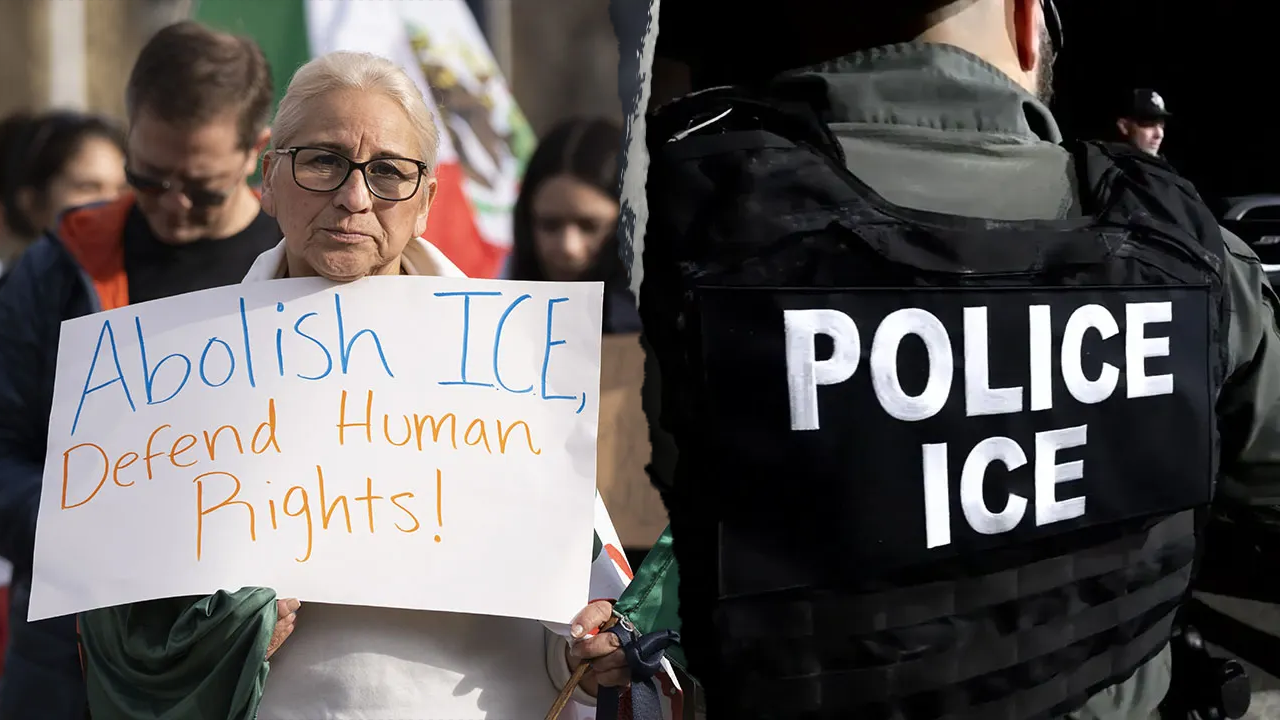Major ICE workplace raid in Omaha followed by rock-throwing protesters

Following a recent workplace ICE raid at a meatpacking plant in Omaha, which resulted in the arrests of approximately 70 alleged illegal aliens, tensions escalated as protesters threw rocks and jumped on federal vehicles carrying out the operation. The raid, conducted by federal immigration authorities at Glenn Valley Foods on Tuesday morning, was reported to be the largest worksite enforcement operation in Nebraska since President Donald Trump took office.
According to ICE officials, the raid was part of an ongoing criminal investigation into the large-scale employment of aliens without proper authorization to work in the United States. However, details surrounding the raid have not been confirmed, as Fox News Digital reached out to ICE for verification but did not receive an immediate response.
The situation turned volatile as protesters began to gather while a caravan of federal vehicles was leaving the plant. The Flatwater Free Press reported that protesters surrounded the vehicles, throwing objects, kicking the cars, and yelling profanity and slogans like “f— you, pig.” Videos posted by the outlet captured the chaotic scene, showing protesters jumping on moving law enforcement vehicles, shattering windows, and causing damage to the vehicles.
This incident in Omaha comes on the heels of violent anti-ICE riots in Los Angeles, where protesters targeted federal law enforcement officials by throwing rocks, looting stores, setting cars on fire, and taking over a freeway. In response to the escalating violence, President Trump announced the deployment of 2,000 National Guard members to help restore order, bypassing the governor’s typical activation of the National Guard.
Trump’s decision to deploy additional forces to address the unrest has sparked controversy, with California Governor Gavin Newsom filing a lawsuit against the Trump administration for allegedly “federalizing the California National Guard.” Democrats across the nation have criticized Trump’s handling of the riots, characterizing the anti-ICE protests as peaceful demonstrations and placing blame on the administration for the violence.
During a press briefing in the Oval Office, Trump warned of further immigration raids across the country, similar to those in California, and vowed to respond with “equal or greater force” to any potential riots that may occur in response to the enforcement operations. The administration’s deployment of National Guard and active-duty Marines underscores the government’s commitment to restoring law and order amidst the ongoing protests and unrest.
In conclusion, the recent workplace ICE raid in Omaha and subsequent protests highlight the contentious debate surrounding immigration enforcement in the United States. As tensions escalate and violence erupts in various cities, the government faces the challenge of balancing immigration enforcement with maintaining public safety and order. The situation remains fluid, and the response to future raids and protests will continue to shape the national dialogue on immigration policy and enforcement.




